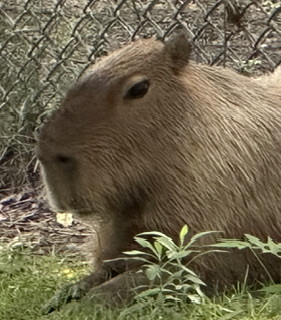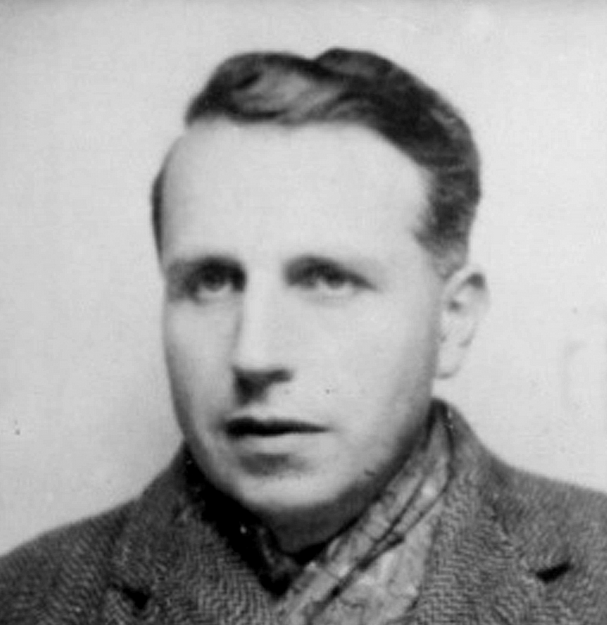While the communist party of India (marxist) , is not in power as of now , they have had history of winning elections, however there is a fatal flaw in their ideology , when it comes to fighting against opperession , while they agree upon existence of class disparity and want to work on the goal of removing it , the oldschool communists do not recognise caste system. For those who are not aware , caste system is a problem specific to indian subcontinent , it is like a dominant class of people who are called the upper castes ( tho in minority) , had deprived the lower castes , into not allowing them to get educated or get any other work that they were assigned at birth , by the family name they were born in . That kept the lower castes poor and deprived for ages. The CPI(M) is mostly flooded with the upper caste and do not recognise this systemetic opperssion that has been in place since ages !
I once read a book called Republic of India by Anand Teltumbde. (He has been falsely labeled a Maoist and jailed without trial). He talks about caste and Marxism in it. I don’t know about CPI Marxist’s work against casteism so I will refrain from commenting on that specific issue. But the aforementioned book talks about casteism in a way that I haven’t found anywhere else. For example:
The early communists in India were typically youth from the educated brahmin middle class, inspired by the Bolshevik Revolution in 1917 and by their diet of literature and other resources smuggled from Britain and Russia. They naturally began their activities with trade unions, which, in fact, had cropped up much before the Communist Party of India was formally founded in 1925. Their confrontation with caste was limited to organisational contradictions within trade unions that included a small minority of dalit workers. The faultline of caste was something the communist leadership wanted at all costs to avoid facing or redressing. In the textile mills of Bombay, for example, where the communists had total control over the workers, dalits were debarred from jobs in the better paid weaving section as the non-dalit workers were repulsed by the prospect of being polluted if they touched threads that had been joined by dalits: before putting the thread into the machine for the first time as well as joining the broken thread thereafter, a worker had to wet the end of the thread with saliva. Also, untouchability was practised by keeping separate pitchers of drinking water for dalit workers in the mills. Even after Ambedkar pointed out these oddities, the communists did not act for fear of displeasing the caste Hindu workers. A decade later, Ambedkar would raise this issue in 1938 delivering the presidential address to the G.I.P. Railway Depressed Classes Workmen’s Conference in Nashik:
It is notorious that there are many avocations from which a Depressed Class worker is shut out by reason of the fact that he is an untouchable. A notorious case in point is that of the cotton industry. I do not know what happens in other parts of India. But I know that in the Bombay Presidency, the Depressed Classes are shut out from the weaving department in the cotton mills both in Bombay and in Ahmedabad. They can only work in the spinning department. The spinning department is the lowest paid department. The reason why they are excluded from the weaving department is because they are untouchables. … (in Das 2009, 52).
Instead of seizing the gravity of the caste question and facing it, the communists took shelter under Marx’s metaphor of base and superstructure, as though it was incontrovertible. They feared that confronting the issue of caste might lead to organisational break-up, quite like how bourgeois parties fear losing Hindu votes if they speak out against the hindutva excesses of the Sangh parivar.
Instead of seizing the gravity of the caste question and facing it, the communists took shelter under Marx’s metaphor of base and superstructure, as though it was incontrovertible.
I think atleast CPI(M) have shown a willingness to adapt Marxism to the current Indian material conditions. One of the articles I linked in the other comment mentioned how:
Perhaps the most important retrograde development is that the entire caste system has become hereditary and transformed itself into a crystallized prejudice structure. Although it is still a superstructure of the relations of production, it has over the centuries acquired a measure of autonomy, and in some ways behaves independently of the relations of production. This is the most distinctive characteristic of class relations in India today. This is also the single most important social reality that the left forces spearheading the class struggle in India must weave into their strategy.
In their 23rd political resolution (latest), one of their clauses mentioned Casteism specifically:
Abolishing of the caste system and all forms of the caste oppression; special measures to ensure basic human rights to the SCs and STs; enactment of central legislation for special component plan for SCs and an ST sub-plan with an empowered committee to monitor its implementation; protection of Constitutional and legal provisions for adivasi rights to forest lands, livelihood and culture; enactment of law to provide reservations in the private sector; filling up of all backlogs of jobs in reserved categories. Strict implementation of the abolition of manual scavenging; strict punishment against practices of untouchability; strict implementation of the Forest Rights Act; caste census to enumerate OBCs.
Also the mentioned clauses are technically just words from the indian constitution , that is socialist in its structure !
deleted by creator
In a country like india , where casteism is high, even if there is class consciousness among the masses , I dont think the stigma against castes will go ! That way a certain section of the society will always be kept deprived! And while all bjp does is just for the namesake. No one is asking cpim to do a namesake show or elect all obc leaders for the sake of it , however along with class , caste consciousness shall be adopted in caste of india , else there is no way we can acchieve class equality. If you call it identity politics then you are talking like a liberal who calls dalit issues when asking for lgbt rights as identity politics and intersectionality bad. Pointint queer issues out , most of the prominent lgbt india activists are actually right winger ( unfortunately so) , and I know that coz I am queer , so will the party also say , how many queer people supported so and so thing ! When aiming to make an equal society we need to check all boxes of equality wherever possible !
talking about LGBT rights then waving Azov battalion flag is as bad as BJP doing namesake caste affirmative movements. Most identity politics of bahujans falls into this category. Most leftist bahujans who talk about Ambedkar and so on , don’t want to admit that Ambedkar himself was a anti communist and he has nothing to do with India’s left politics. Even within the lower caste people or dalits they have inter caste issues and this caste problem cannot go away by mere admitting dalits into politburo and your point that is the biggest flaw of CPIM. There are liberals who talks about why CPIM doesn’t have more females if it represents equality among sexes. These are bourgeois talking points and btw you are only repeating those talking points here by slandering CPIM who fought against casteism for decades and also for tribal rights . What did ambedkarites achieve for the whole population ?
Now liberals of the country thing that caste system is dead , because there has been affirmative action since last 70 years in the country !
I have heard about this criticism of the CPI(M) before.
Is there any specific statistics or articles that speak on this matter?
Because I know for a fact that there are materials on the CPI(M) website that mentions caste.
CASTE AND CLASS IN INDIAN POLITICS TODAY
and
CLASS STRUGGLE AND CASTE OPPRESSION : INTEGRAL STRATEGY OF THE LEFT .
A relatively more recent article on this subject: Caste and the CPI(M) in Tamil Nadu
This was from a quick online search I did months back when I was curious about the topic.
Do you believe that the party has not adequately addressed the issue despite all this?
Is it a case of not walking the talk?
I am very curious, because back in my home country, caste among Malaysian Indians is considered quite antiquated. From what I understand, and know, it is not as pervasive as in the past, and perhaps the nature of the political economy here destroyed any material basis for caste oppression specifically.
I am very curious, because back in my home country, caste among Malaysian Indians is considered quite antiquated.
I’m just gonna address this. It is possible that that is true for Malaysian Indians (I don’t know much about Malaysia so sorry about that) but emigrated diaspora still dabble in casteism sometimes. It is something that does not get much attention but bubbles up to the surface sometimes. For example: California accuses Cisco of job discrimination based on Indian employee’s caste. The city of Seattle also banned caste discrimination recently though I don’t know what prompted that.
deleted by creator
Well the party just does namesake announcements like every party does , however the party higher ups are actually full of the upper caste people who think that solving class issues would solve caste based issues , they are more like liberals when it comes to most social policies i feel , may be economically left!
can you speak more to this, or point me to more material on the continuation of caste systems? I’m aware dhalits are still subject to discrimination, but I know very little about the system and contemporary implications
Well even to this day the caste system exists in implicit or explicit forms , when you see that the jobs those are for instance a jaintor job , or a person cleaning bathroom , cutting hair , etc they are all seen as lower caste , some of them are even considered untouchable, people would not allow them to get a simple job as well , for instance they wont be allowed to get a domestic helper job either , and tho this is not explicit , this is implicit, even if few of them are ablet to come out of the toxic system, and they make some money , society still has contempt and stigma towards them, they arent allowed to rent house easily , are called names , if they get into educational institute they are bullied , many of them even got killed in recent years for doing something normal , like wearing a good wedding dress coz an upper caste didnt like it !
That sounds like discrimination from the labour aristocracy. I can see this as an exploitable weakness to subdivide the working class, weakening the movement.
Caste discrimination is rampant even among the poorest. It is not something that the wealthier do to the poorer.
Edit: I hate typing on the phone
Still a poor brahmin ( upper caste ) wont be discriminated in a public school while a poor dalit will be ! They have a privilege attached , its like white man privilege in the states !
That is what I meant to say
That is what it is exactly , but even if you see comments on this post , people call it idnetity politics !
thats because it is, IDpol is propogated top-down and benefits the upper class (if we are both saying that people calling the caste system IDpol anyway, just making sure we’re on the same page)
Eh ? How would asking rights for lower castes benefit the upper caste ?
oh it wouldnt, if people are saying that is IDpol they have 0 idea what IDpol is; you’re correct in saying that the caste system is the IDpol and its not IDpol to demand rights for lower castes, or to demand the full abolishment of the caste system, as it is one of the worst forms it takes globally. The indian caste system is brutal and I hope you rid yourselves of it soon comrade.
So the caste system in India absolutely exists. But outside of making discrimination based on caste illegal, I’m not sure how the Communist Party of India is supposed to respond? Push for class/caste solidarity, but otherwise engaging with the caste system is simply reinforcing it.






